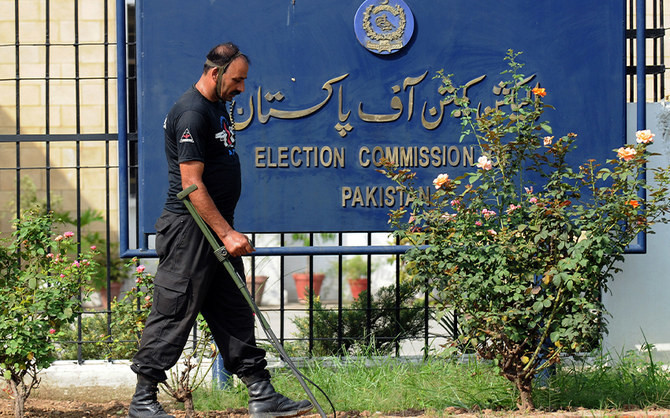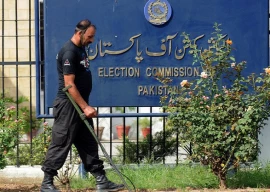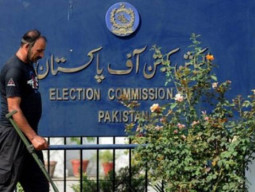
The electoral watchdog has recommended making changes in sections 57-1 and 58 of the Elections Act, 2017 to empower it to change the date and schedule of the polls – in a bid to curtail the authority of the president in these matters.
The proposed draft for the parliamentary affairs ministry in connection with the amendments to the Elections Act has been prepared.
Section 57-1 currently reads: “The President shall announce the date or dates of the general elections after consultation with the [Election] Commission [of Pakistan].”
After amending this section, the power to announce the polls date will solely lie with the Election Commission of Pakistan (ECP), excluding the role of the president.
Also read: Top court puts its foot down sets May 14 as date for Punjab polls
The objective of the amendment is to authorise the ECP as the sole body to announce the date for the general elections.
As for section 58, in its present form it states: “The Commission may, at any time after the issue of the notification under sub-section (1) of that section [57-1], make such alterations in the Election Programme announced in that notification for the different stages of the election or may issue a fresh Election Programme as may, in its opinion to be recorded in writing, be necessary for the purposes of this Act: Provided that the Commission shall inform the President about any alteration in the Election Programme made under this sub-section.”
If the proposed amendment to this section is introduced, it will strengthen the role of the commission and allow it to announce the schedule without anyone’s “interference”.
The amendment is aimed at removing the ambiguity in the change of election programme or the issuance of a new one.
The ECP will be able to change the polls programme at various stages and give a new elections date and new schedule with written reasons.
The commission has prepared an amendment draft to send to the parliamentary affairs secretary and also sent him a letter mentioning the reasons behind the changes.
According to the text of the letter written by the ECP secretary, the commission is an autonomous body and responsible for conducting fair and transparent elections.
It added that the mandate of the ECP to conduct elections should not be subordinated to anyone.
According to the Constitution, it pointed out that the commission had to decide whether the circumstances were fit to hold the elections or not.
It complained that the recent judgments of the Supreme Court had deprived the commission of exercising the powers enumerated in Article 218-3.
Also read: Elections in K-P on Oct 8, announces ECP
The letter added that according to Article 218-3, the ECP had to review the circumstances first and then decide to hold the elections.
The commission noted in the letter that the SC’s verdicts in the Worker Party and Al-Jihad Trust cases had defined the role of the ECP.
In the Worker Party's case, the top court had declared that it was the responsibility of the ECP to conduct the elections and to make all necessary arrangements before the polls.
The letter added that the SC had observed in the case that the Constitution gave the ECP full responsibility for pre-election and polling day arrangements.
According to the Al-Jihad Trust case, it could not be said that the chief election commissioner was subordinate to any authority in discharging his responsibilities.
The letter read that no provision of the Constitution supported the president announcing the elections date after the dissolution of the National Assembly or the end of its term.
It added that it was the reason for the announcement of the elections date by the president under the Election Act, 2017 was against the constitutional design.
Therefore, the letter continued, the amendments to 57(1) and 58 were recommended to remove this ambiguity.


1722586547-0/Untitled-design-(73)1722586547-0-165x106.webp)


1732326457-0/prime-(1)1732326457-0-165x106.webp)















COMMENTS (1)
Comments are moderated and generally will be posted if they are on-topic and not abusive.
For more information, please see our Comments FAQ